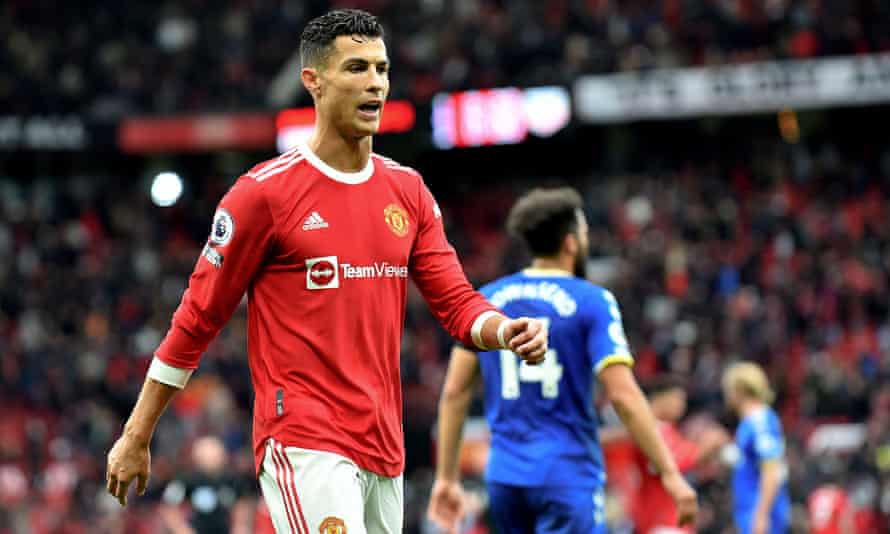Glazers’ heritage-hawking risks making Manchester United a 90s theme park
“It’s a write-off.”
“A write-off of what?”
“Jerry, all these big companies, they write off everything.”
“You don’t even know what a write-off is.”
“Do you?”
“No.”
When the business affairs of the Glazer family are mentioned, specifically the weird, laughing gas-powered takeover of Manchester United, it is hard not to think about Jerry and Kramer in Seinfeld discussing the insurance industry.
You can say the words “leveraged buyout” as often as you like. You can describe what it is. You can unravel the mechanics – the purchase of an object by borrowing against the value of that object before you own that object – and still have absolutely no idea how this is allowed to be a thing, how it is people can point at it and say, yep, that’s absolutely fine.
There was a similar head-spin about the Manchester United share sale this week, the sense of a brilliantly closed circle in action. Here’s how it went down. In August the Glazers decided Manchester United should sign Cristiano Ronaldo, a star player the team don’t exactly need, but a massive boost to the brand, and all paid for out of Manchester United income.
Because of that star power the share price leapt to its highest point since 2018. Ole Gunnar Solskjær, a good company man, could be relied on to say the correct heritage-ball things. A month later the Glazers sold their personal shares, making a large profit on an investment made while wearing the clothes of Manchester United. It’s brilliant really. There is no risk here, only reward. They just write it off. Everyone writes it off.
There are various ways to describe the murkier practice of affecting a company share price for your own gain, things like “pump and dump”. That is emphatically not what’s happening here. It’s all above board and out in the open. Signing Ronaldo may even end up an on-field masterstroke, such is his brilliance. For now it’s also the best kind of market management. Free to those who can afford it. Very, very expensive to those who can’t. But it is also legitimate to ask: what kind of football club is this exactly? In the past phrases such as “it’s a business now” or “it’s all Hollywood” have felt like bracing platitudes. Somehow the game itself, the part that happens on the pitch, was strong enough to resist. But there is a kind of creep to this stuff, a sense of slackening.
The other thing that happened at Manchester United this week was also to do with Ronaldo. The big story after the draw with Everton was that Alex Ferguson had been caught on camera discussing Solskjær’s failure to select Ronaldo with a retired cage fighter. Fans of the club will object, correctly, that this is fluff, an absurdly overblown media story.
But that’s the whole point! This whole weird tableau is a perfect paradigm of a sporting institution mired, lucratively, in the past. Here we have the ex-manager who shouldn’t still be having an influence, sharing his views on a club legend who isn’t really needed, as deployed by an ex-player who shouldn’t be the manager. The whole thing is gold, a bonus trip to the Manchester United 1990s waxwork museum.
It is entirely logical that we should have ended up here. The Glazer method has always been to sweat the heritage, to make the past pay in the present.
Mainly this has revolved around growing the commercial arm, and expertly so.
That headline figure of £1bn taken out of the club should probably be adjusted to reflect income brought in by the things they are so very good at – vinyl flooring partners, e-scooter tie-ins – and which will still be an asset when they sell.

This is not a club trapped in the past against its will. This isn’t Liverpool at the end of the 1980s, a club haunted by itself. It is the slickest of short-term business models, mastery of a powerful brand in a chaotic world. All the details might not be geared toward those fine points of cups, pots and team-building. But hey, check out the bottom line.
It is true that oddities will start to creep in. As Everton swept through the centre of the United midfield last Saturday Ronaldo could be seen turning to Fred and slapping one hand into the other, indicating that he wasn’t being strong enough. None of this is Ronaldo’s fault. He knows better than anyone else what a team looks like. The central midfielders he is accustomed to playing with include Roy Keane, Xabi Alonso, Casemiro, Luka Modric, Toni Kroos and Miralem Pjanic.
Fred is not this. He should, if we’re dealing in pure sport here, have been upgraded by now using the funds allocated instead to sign the bolt-on club legend up front. Perhaps this is a kind of dramatic irony.
For now the whole unignorable spectacle will roll on, still in so many ways a gloriously fun, grand, sharp-teethed football team. United have four of the top five best-paid players in the league, evidence of an enduring commitment to actually making this work. It isn’t a write-off just yet. Theatre and sport are not necessarily incompatible. But it is a perilous balance.
Which way is this one going to tilt?
Subscribe To Our Newsletter
-
How to get a free jersey
- How to get Pcs free jerseys Feedback Customer Reviews About Us Contact Us News FAQ
-
User Center
- Forget Password My Orders Tracking Order My Account Register
-
Payment & Shipping
- Customs & Taxes Locations We Ship To Shipping Methods Payment Methods
-
Company Policies
- Return Policy Privacy Policy Terms of Use Infringement Policy

